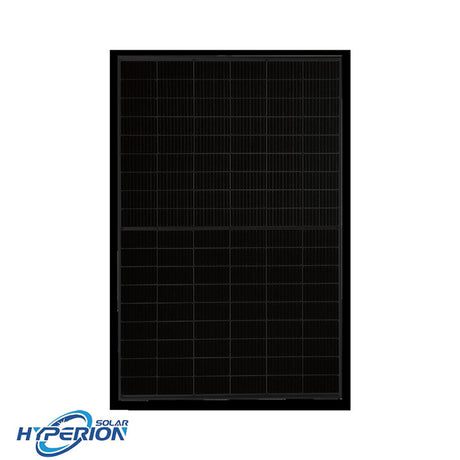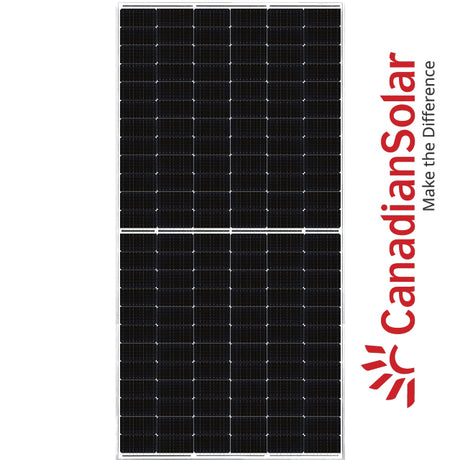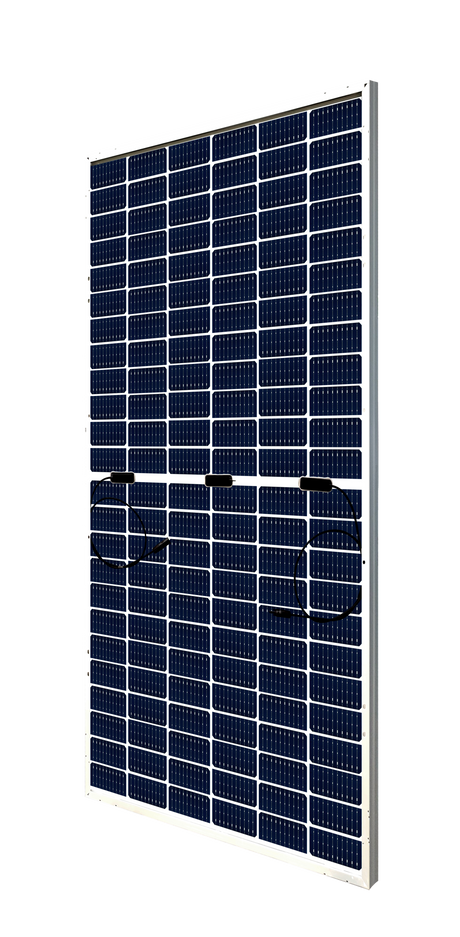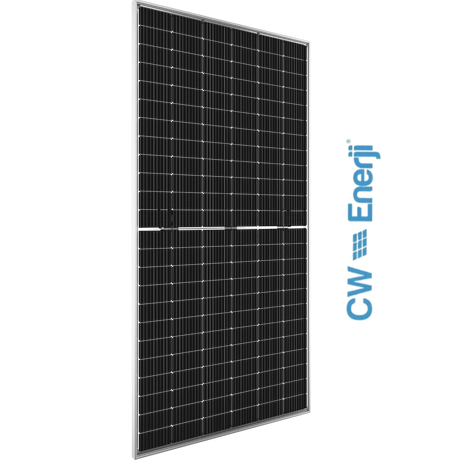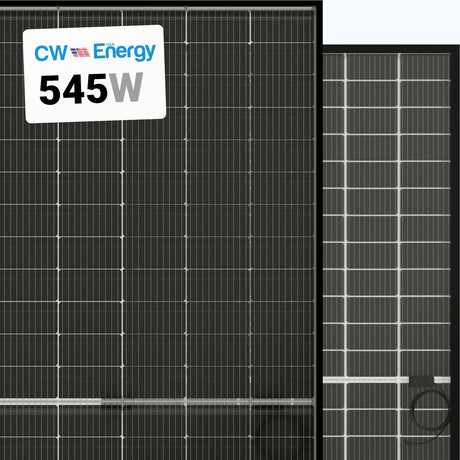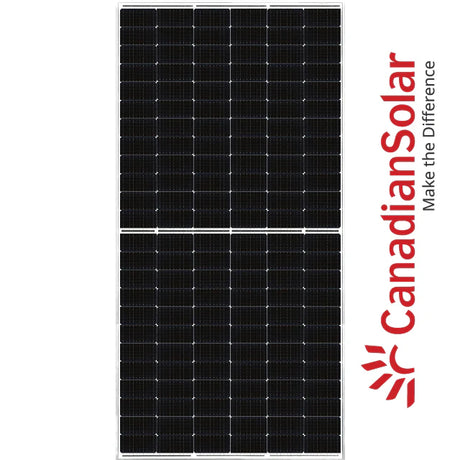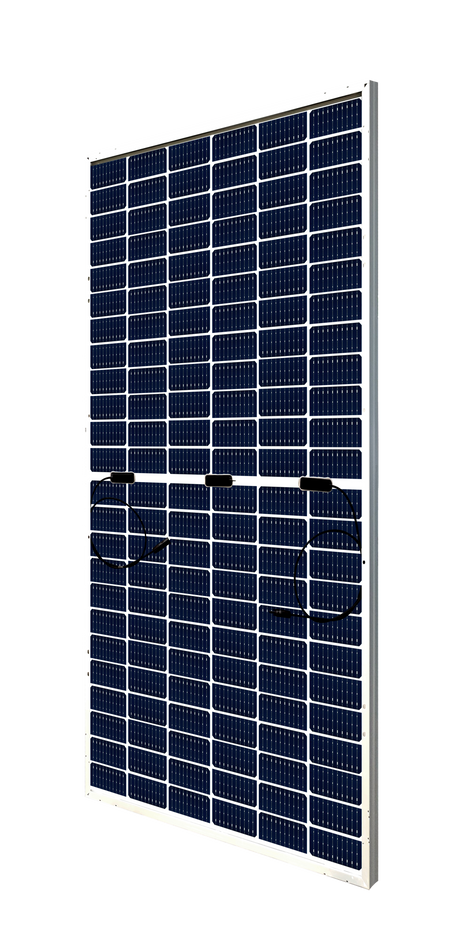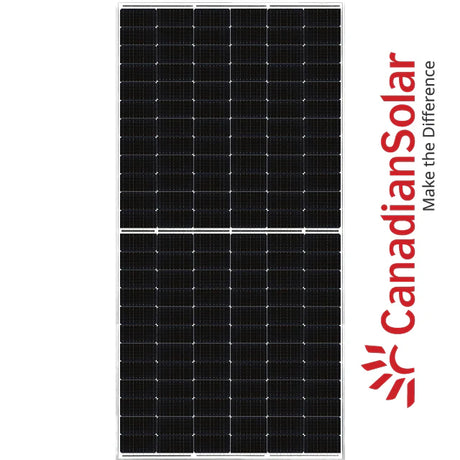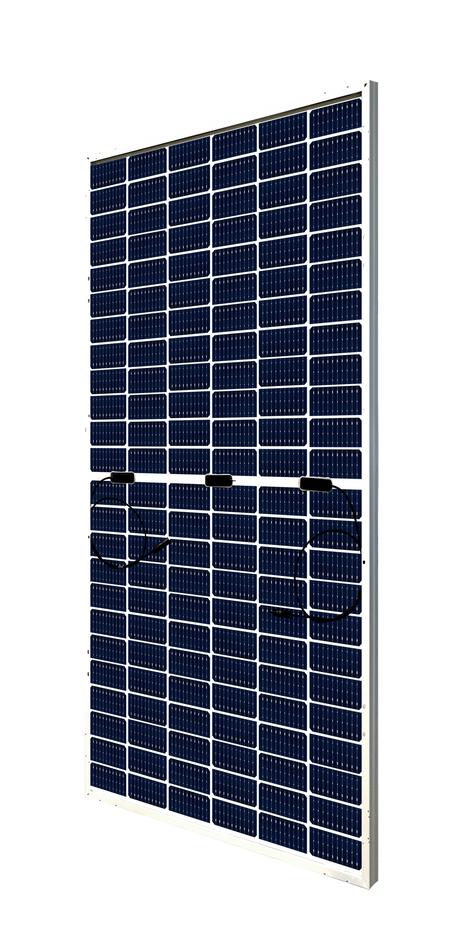Hyperion
Hyperion 405W Bifacial Solar Panel - Up to 510W Output
$132.00$178.24Unit price /Unavailable- 21% off
Canadian Solar
Canadian Solar 530W Bifacial Solar Panel| Up to 640W Bifacial| CS6W-530MB-AG
$218.40$275.90Unit price /Unavailable - 15% off
CW Energy
CW Energy 550W Bifacial Solar Panels | Up to 715W Bifacial Gain| CWT550-144PMB10 (Black)
$199.99$235.21Unit price /Unavailable - 26% off
Canadian Solar
Canadian Solar 710W N-Type TOPCon Bifacial Solar Panel | Up to 850W Bifacial | CS7N-710-TB-AG
$259.29$349.12Unit price /Unavailable - 10% off
Canadian Solar
Canadian Solar CS3W-445W BiHiKu Bifacial Solar Panel | 445W High-Efficiency Mono PERC | Up to 580W
$162.00$179.99Unit price /Unavailable
What Is a Solar Panel?
A solar panel is a device that soaks up sunlight, turning it into eco-friendly power using photovoltaic cells. These cells absorb solar energy and generate direct current (DC) electricity, which the inverter then converts into usable alternating current (AC) electricity.
As a key source of sustainable energy, solar panels help reduce reliance on fossil fuels, thereby contributing to a cleaner environment. In addition, when paired with a solar battery for energy storage, they allow for off-grid living and energy independence.
Different Types of Solar Panels
Here are the three most common types of solar panels:
- Monocrystalline solar panels. These are black with a sleek design and a single-crystal structure. For this reason, they have fewer failure points and are thus more durable (25 to 30 years).
- Polycrystalline solar panels. These panels are blue with a speckled pattern. Since they’re made of multiple silicon crystals, they have more failure points and a slightly shorter lifespan (20 to 25 years).
- Thin-film solar panels. They are lightweight and flexible and come in both black and blue colors. Because they’re made of thinner materials, they have a shorter lifespan than crystalline panels (10 to 20 years).
There are also bifacial solar panels which capture sunlight from both the front and back sides. Most of these panels use monocrystalline technology, offering the same efficiency and durability benefits, but with better overall performance.
4 Key Benefits of Using Solar Panels
The key benefits of using solar panels are portability, cost savings, reliable off-grid energy, and eco-friendliness.
Let’s look into each of them more closely:
#1. Portability
With solar panels, you can enjoy the benefits of clean solar electricity wherever you are. These devices are easy to transport and set up, providing instant, renewable power whenever it’s needed.
#2. Cost Savings
While they may seem pricey at first, solar panels offer unmatched long-term cost savings. By generating your own clean energy, you can save a lot of money on utility bills on top of reducing your carbon footprint. When you add solar panels’ long lifespan and low maintenance needs to the equation, it’s safe to say that the investment quickly pays for itself.
#3. Reliable Off-Grid Energy
Solar panels allow you to be completely independent from the grid and produce your own electricity. With a solar battery, you can have an off-grid power supply, empowering you with energy freedom and eliminating your reliance on traditional utilities. Solar power storage units collect sunlight during peak sun hours, saving it for use on cloudy days and at night.
#4. Eco-Friendliness
With the sun as your main source of energy, your carbon footprint will be practically non-existent, especially if you choose an off-grid solar system. For this reason, solar panels are the most eco-friendly power solution, allowing you to live in a cleaner environment without losing out on the benefits of a modern lifestyle.
How to Choose the Right Solar Panel for Your Needs
To choose the right solar panel for your needs, you should consider its energy capacity, durability, compatibility with your system, size, and price.
Here’s a breakdown of all the factors:
1. Energy Capacity
Your energy needs dictate your choice of a solar panel. Do you plan on powering your entire household with solar or using it to cover part of your electricity consumption? Answer this question to figure out which solar panel capacity is best suited for your needs.
2. Durability
Durability is an important factor, especially if you live in an area with harsh weather conditions. Heat, snow, wind, and hail can cause both chemical and mechanical damage to solar panels, so you might want to consider their weather resistance and choose panels designed to withstand extreme conditions.
3. Compatibility With Your System
If you want to add more panels to your solar system, it’s important to ensure they’re compatible. For starters, the panels you choose need to be easily integrated into your existing setup. Additionally, they must align with the inverter to prevent efficiency drops or damage to other components.
4. Size
Solar panel dimensions range from small to large, and your installation area determines which one you need. If you have limited space, you might want to opt for smaller panels with higher solar efficiency to make up for the constraints.
5. Price
Solar panel prices vary depending on the quality of their materials, efficiency, brand, size, and technology. Those that cost more upfront generally have longer lifespans and better output, leading to greater long-term savings on energy bills.
Solar Panels FAQ
1. How many solar panels are needed to run a home?
The number of solar panels needed to run a home depends on several factors, including energy usage, panel wattage and efficiency, and sunlight hours. Whether you want to go off the grid also plays a role, as more panels may be required to meet your energy needs.
2. Are solar panels worth it anymore?
Solar panels are still worth it, probably now more than ever, given the increased cost of electricity and pollution. They contribute to a cleaner environment while helping you save money on electricity bills.
3. How much do solar panels cost to install and maintain?
Solar panel installation and maintenance costs depend on the system’s size and location. In general, home solar panel installation prices range from $10,000 to $30,000, while maintenance is a lot cheaper, averaging around $100 to $300 annually.
4. How long do solar panels last?
Solar panels last from 10 to 30 years, depending on the type. Monocrystalline panels have the longest lifespan (25 to 30 years), while thin-film panels last between 10 and 20 years.
5. What’s the best solar panel?
The best solar panel depends on your energy needs, budget, and available installation space. In general, monocrystalline solar panels are the best, as they’re made of the highest-quality materials and thereby the most efficient and durable.

